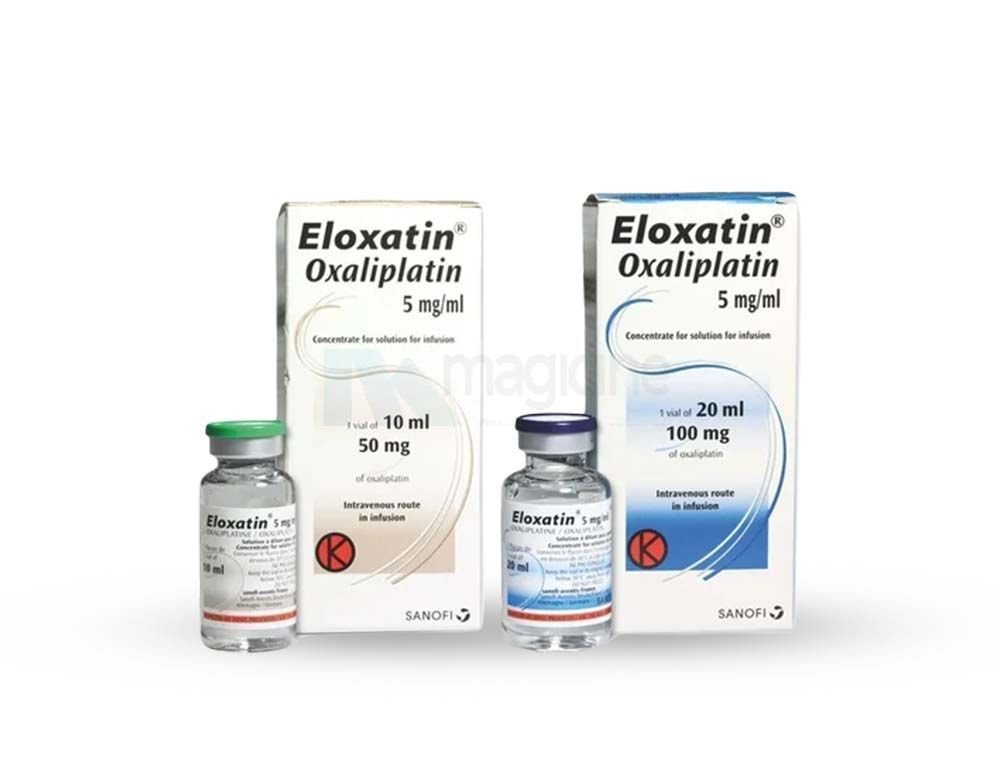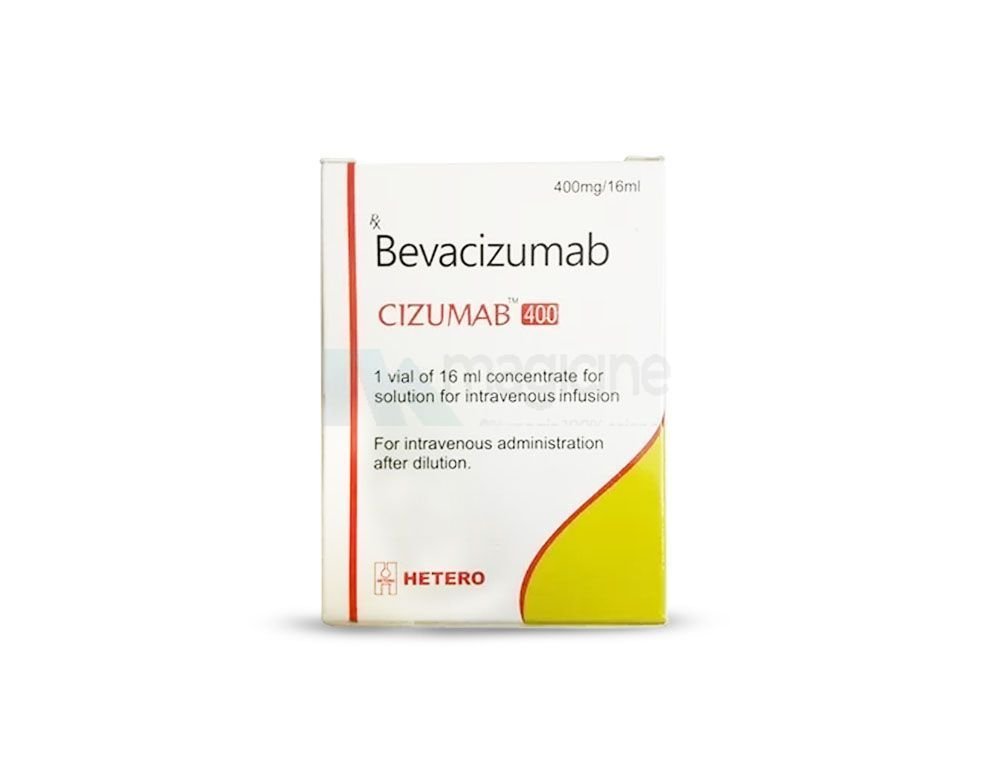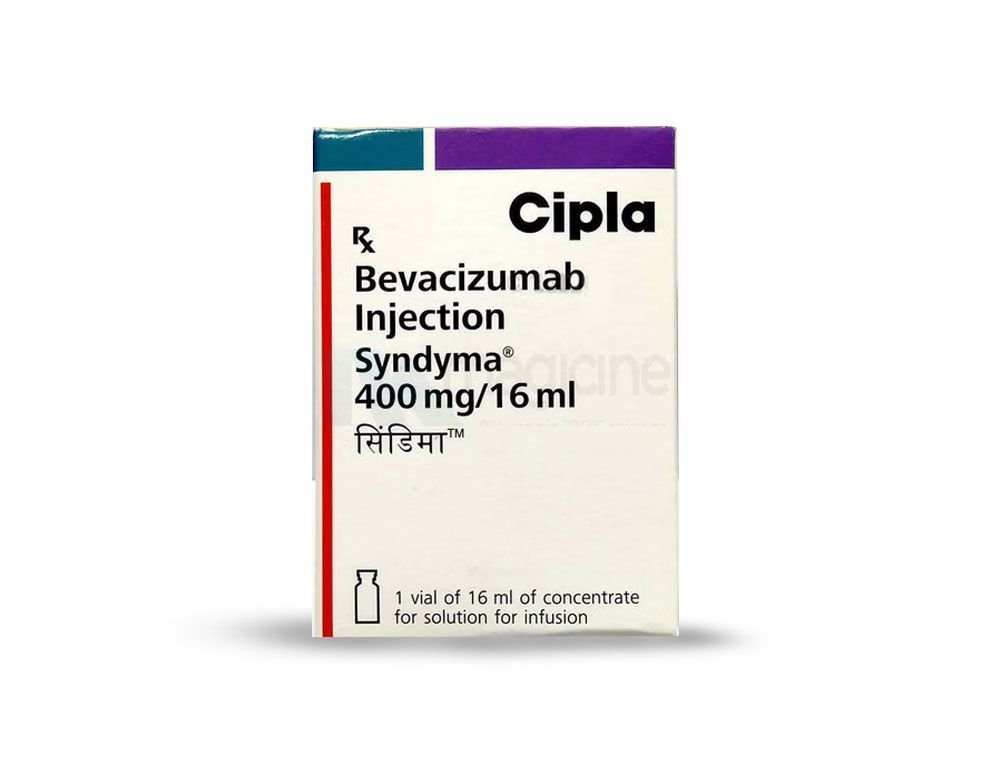Sort
All Filters
Colorectal Cancer
The large intestine is composed of the colon and rectum.
Top Products
What is Colorectal Cancer?
The colon is the starting part of the large intestine. It absorbs water and converts leftover food into stool (poop). The lower part of the large intestine is the rectum where stool is stored. Abnormal cell growth in the colon and rectum or in between them is known as Colorectal cancer. It starts with the formation of some blood clots in the cell lining of the colon called polyps. The presence of polyps doesn't show any symptoms, regular screening can detect them. It usually takes more than 10 years to develop cancer from polyps. Untreated and left polyps can cause cancer. Colorectal cancer can be prevented if polyps are detected. Blood in stools, abdomen bleeding, rectum bleeding, constipation, indigestion, and sudden weight loss are some commonly observed symptoms. Many patients don't show any symptoms, so it is difficult to detect them at a very early stage. This cancer is listed as the second most deadliest cancer in the world. The risk of having colorectal cancer increases with age above 55. Colorectal cancer is treatable if detected at an early stage. The survival rate is higher at early-stage detection than at the advanced stage. It can even cause death if not treated properly.
Basic facts to be known about Colorectal Cancer
● Colorectal cancer is the second most deadliest cancer in the world.
● It is estimated that globally, there were around 1,926,425 people diagnosed with colorectal cancer. Out of which 9,04,019 people died from pancreatic cancer in 2022.
● India reported over 43,360 men and 26,678 women cases of colorectal cancer in 2022.
● In India, 40,993 deaths were reported in 2022. Out of which approximately 25,447 were men and 15,546 were women.
● As per the American Cancer Society, there is rise of around 152,810 new cases of colorectal cancer in 2024 globally.
● According to WHO, It is predicted that colorectal cancer will increase to 3.2 million new cases per year (an increase of 63%) and 1.6 million deaths per year (an increase of 73%) by 2040.
Signs and symptoms of Colorectal Cancer
The presence of polyps is the first sign of colorectal cancer. Polyps can be cancerous or non-cancerous. People don't show any symptoms of the presence of polyps. The signs and symptoms are undetectable at every stage. Some of the common symptoms may include:
● Blood on stool
● Sudden weight loss
● Abdomen pain
● Fatigue
● Breath Shortness
● Frequent Blotting
● Extensive burps
● Acidity
● Rectum bleeding
● Discomfort in bowel movement
● Vomiting and nausea
● Loss of appetite
● Diarrhea
● Constipation
Risk factors causing Colorectal Cancer
Colorectal cancer occurs with DNA damage due to mutation. It first forms a mass of cells known as tumors. When it starts to spread in nearby areas, it becomes metastatic cancer. The exact cause of colorectal cancer is still unknown. However, there are still some risk factors leading to colorectal cancer. Some of them are listed below:
● Personal medical history and Genetics: People with having cancer history in their bloodline are most prone to this disease.
● Improper diet: Taking high-fat food and an imbalanced diet cause indigestion. Long-term effects can lead to colorectal cancer.
● Chronic Ulcer: Long-term ulcers can increase the chances of having this cancer.
● Age: Colorectal cancer is common among age group 50-60.
● Low fiber diet with high fat intake: Low fiber in food causes constipation and indigestion. It leads to more undigested food and stools become bulky. It can further cause IBS and ulcers that open up to colorectal cancer.
● Presence of polyps: Polyps are blood clots formed due to low diet. These are the risk factors that can lead to colorectal cancer.
● High consumption of red meat & processed food, smoking, and alcohol contribute to the diagnosis of colorectal cancer.
● IBS (Irritable Bowel Syndrome): A problem in bowel movement that causes indigestion. Severe IBS can form cancer.
Types of Colorectal Cancer
There are four types of colorectal cancer based on their location and point of origin.
● Carcinoid tumors: These tumors start from hormone-secreting cells in the intestine.
● Gastrointestinal Stromal Tumors: These tumors start from nerve cells present in the wall of the intestine. These are rare tumors but common in the stomach.
● Lymphomas: These cancer start from lymph nodes and spread to the rectum and colon.
● Sarcomas: This cancer starts from blood vessels and connective tissue present in the walls of the colon and rectum. This cancer is not curable.
Stages of Colorectal Cancer
The stages are described based on the affected area and its extent to another part of the body. There are five major stages of colorectal cancer. These are discussed below:
● Stage 0: This stage is known as carcinoma in situ. It is indicated by the presence of polyps and some cell growth in the inner cell lining of the colon and rectum.
● Stage 1: The cancer cells start to spread to the intestinal wall and are much closer to the lymph node.
● Stage 2: In this stage of cancer, cancer cells spread to the second layer of the intestinal wall and reach the outermost layer of one of the lymph nodes.
● Stage 3: Cancer cell spreads to lymph nodes and affects all layers of the intestine.
● Stage 4: Cancer spreads to all nearby organs like the liver, lymph nodes, abdominal tissue, lungs, and ovaries.
Method used in the detection of Colorectal Cancer
If you're observing any signs and symptoms listed above, you should consult an oncosurgeon or colorectal surgeon as soon as possible. There are some methods to diagnose colorectal cancer are discussed below:
● Physical examination and medical history: The healthcare provider will feel your abdomen for any kind of swelling, pain, or any enlarged organs. The doctor may perform a digital rectum test. During this test, the doctor will insert a lubricated, gloved finger inside the rectum to feel abnormal painful areas.
● Fecal occult blood test (FOBT): This test detects the concealed blood in the stool, which can be an indicator of colorectal cancer.
● Imaging test: Medical experts will prescribe some imaging tests to detect cancer properly. These tests are abdominal ultrasound, CT scan, and MRI Scan. These tests help to visualize the affected area, and tumor size, and confirm the stage of cancer.
● Colonoscopy: It is the most common screening test to detect colorectal cancer. A small tube with a small video camera is inserted through the anus. It gives clear images of the rectum and colon. Biopsy samples are also collected through this method.
● Biopsy: During colonoscopy, if the doctor suspects unusual growth in your rectum or colon. A colonoscopy tube with a small needle at the end will go down through the anus to get a sample for biopsy.
Way to prevent Colorectal Cancer
Many things in our daily lives increase and decrease the risk factor for colorectal cancer. A change in a few habits in daily routine will prevent colorectal cancer. Some prevention ways are:
● Consume a high-fiber healthy diet with basic nutrients
● Do exercise daily and be physically active.
● Say no to smoking and avoid alcohol consumption.
● Avoid environmental exposure
● Maintain healthy weight
Treatment method for colorectal cancer
The treatment method depends on the stage of diagnosis and the patient's history. Early detection of colorectal cancer has better treatment options, prognosis, and outcomes.
● Surgery: Surgery is the best treatment method if cancer is detected at an early stage and localized. It aims for the removal of affected tissue and prevents it from spreading. It shouldn't be a good option if cancer spreads to other parts of the intestine.
● Chemotherapy: Chemotherapy uses anti-cancer medicines to kill the cancer cells. It can be performed after or before surgery. Some drugs such as Cyramza (ramucirumab 500 mg ) and Versavo ( Bevacizumab 400 mg ) are available at Magicine Pharma at very affordable rates. Visit the website to get great discount offers.
● Radiation therapy: It uses high beam radiation to kill the cancer cells and prevent their multiplication. This therapy uses a drug that reduces the size of the tumor.
● Targeted gene therapy: This therapy targets specific cells and kills them. This therapy shows fewer side effects than radiation and chemotherapy.
● Immunotherapy: This therapy includes drugs that will boost your immune system. This drug helps to fight against cancer cells.
FAQs
1. How do I know if my colon is okay?
There is no way to know if a colon is in good health. Good, easy, and regular bowel movement is a good sign.
2. What confirms colorectal cancer?
A colonoscopy is a test prescribed by a healthcare provider that confirms if there is colon cancer or not.
3. What are the first symptoms of colorectal cancer?
Bloody stools, rectal bleeding, and lower abdomen pain are the very first symptoms of colorectal cancer.
4. How long do colon cancer patients live?
The survival rate depends on the stage detected and how patients respond to treatment. According to the American Cancer Society, there is an estimated survival rate of 91% on localized, 73% on regional, and 13% on distant.
5. What drink can prevent colon cancer?
According to world cancer research, caffeic acid found in coffee has been shown to suppress colon cancer. It triggers apoptosis (Cell death) and kills the cancer cells.
References
https://www.cancer.org/cancer/types/colon-rectal-cancer/detection-diagnosis-staging/survival-rates.html
https://www.wcrf.org/preventing-cancer/cancer-statistics/colorectal-cancer-statistics/
https://www.who.int/news-room/fact-sheets/detail/colorectal-cancer
https://my.clevelandclinic.org/health/diseases/14501-colorectal-colon-cancer






